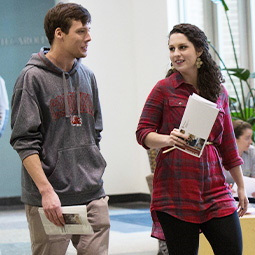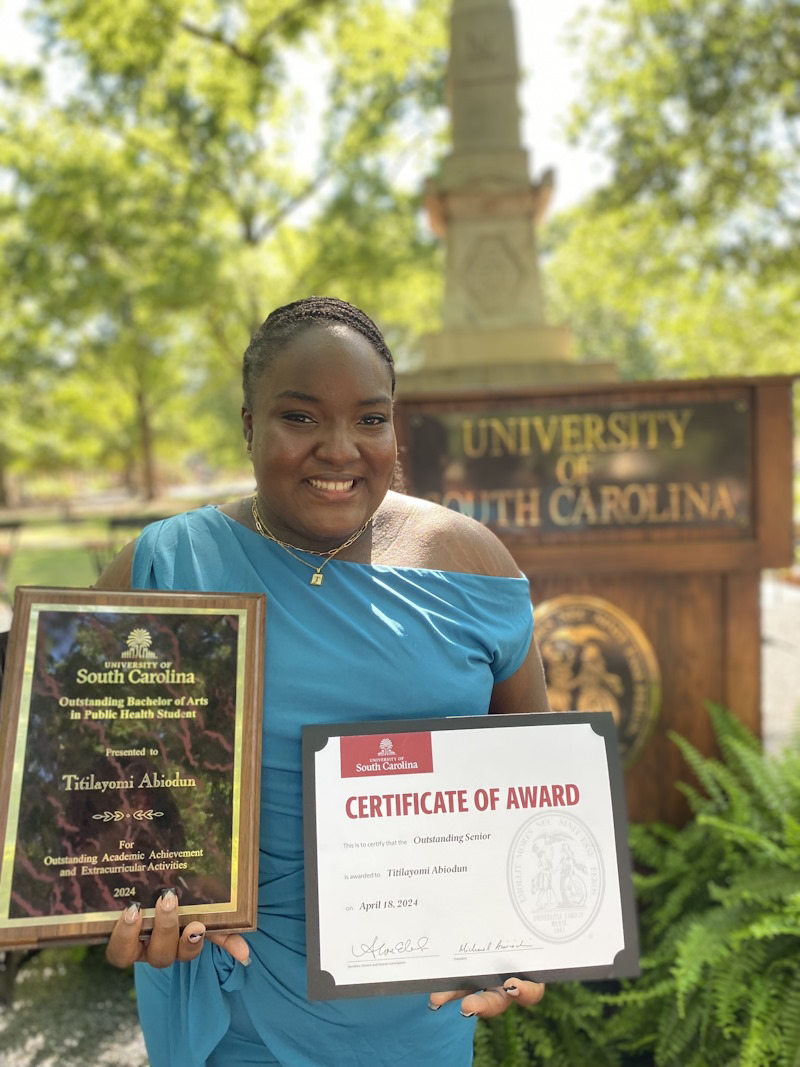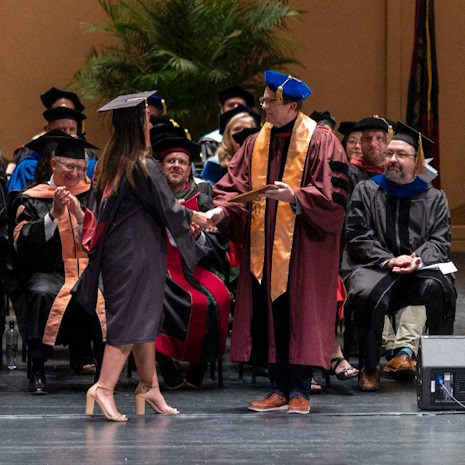
Study Public Health
The Bachelor of Arts (B.A.) curriculum is for students who want to apply the degree to social and behavioral sciences, while the Bachelor of Science (B.S.) is for students who are interested in a broad-based natural science.
May 17, 2024 | Erin Bluvas, bluvase@sc.edu
Titilayomi (“Titi”) Abiodun may have been born in Philadelphia and graduated high school in Blythewood, South Carolina, but she wouldn’t say she’s from either of those places.
“I’m a Nigerian girl,” she says of the lasting impact made by those intervening years. They were also the beginning of her path to public health.
“In Nigeria, you choose art or science as a high school student, and science usually meant engineering or medical school,” Abiodun says. “I knew I wanted to work in health, but I wanted to make a difference for more than just my patients. I just didn’t know what that field was called.”
When she made the move to the U.S. in 2019 to live with her Auntie, the 16-year-old began learning about the field as she considered which college to attend. She loved that public health used research to impact entire populations, and she enjoyed learning about possible careers from her Uncle, Bankole Olatosi, an associate professor of health services policy and management.
USC wasn’t just in her backyard; it was home to the only accredited school of public health in the state, and it became her first choice.
“But really,” she says, “it was USC who chose me.”
Abiodun remembers the moment when she received her acceptance. She was sitting in her AP Biology class and immediately knew she’d found her place.

Though the COVID-19 pandemic delayed her plans to jump into university life that fall, she more than made up for lost time. Over the past four years, the Capstone Scholar has served as a U101 Peer Leader, Orientation Leader and Resident Mentor.
She has been one of the inaugural Arnold School of Public Health Ambassadors, a member of the Diversity, Equity and Inclusion committee, a mentor for the Multicultural Assistance Peer Program, and the public relations officer for the Pan-African Student Association. Abiodun also became involved in the honors society, Omicron Delta Kappa, and the community service organization, Alpha Phi Omega.
As an undergraduate research assistant in the Nolan Lab of Vector-borne and Zoonotic Diseases, Abiodun became even more passionate about using science to improve public health. Under the guidance of epidemiology associate professor Melissa Nolan, the team investigates the spread and impact of vector-borne diseases. With the lab, Abiodun traveled to conferences, attended training in the field (Tick University) and co-authored two peer-reviewed publications.
“Dr. Nolan is a woman who is working to change the world, and she’s committed to preparing the next generation of researchers to be able to do the same,” Abiodun says. “Barbara Cuevas and Sara Corwin have been my rocks. Everyone I’ve met at the Arnold School has a story about how their advisors have set them up for success.”
And, of course, Olatosi has played an important role for his niece as well. “He has taught me to love public health and nudges me in the right direction while also giving me the autonomy to make decisions for myself,” she says of her mentor.
The right direction for Abiodun is research. However and wherever it happens, she’s committed to conducting research and implementing interventions – hopefully in Nigeria one day. Her goal is to work for the Centers for Disease Control and Prevention or the World Health Organization.
“Whichever one chooses me,” she says of keeping an open mind for what comes next. For now, Abiodun is reveling in the experiences of the past four years as she graduates this month with the Outstanding Senior and Outstanding Bachelor of Arts in Public Health Student Awards.

The Bachelor of Arts (B.A.) curriculum is for students who want to apply the degree to social and behavioral sciences, while the Bachelor of Science (B.S.) is for students who are interested in a broad-based natural science.

The Arnold School is proud of our 2024 graduates, who will go on to change the world locally and globally. Learn about some of the other outstanding individuals who completed one of our 34 programs this year.